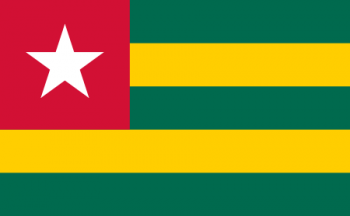I Go Togo
In judging the essays submitted in our ongoing series of writing contests, ITN staff take certain things into consideration when reading each composition. In regard to the destination topic, did we get an idea of what we’ll find at the location and can we picture it? Were we given a feeling for the place? Was there an experience or encounter described that lifted us?
We are pleased to present the winners in the latest contest, the subject of which was “I Go Togo.” The top-ranked essay was that of RICHARD SHERRICK of Greensboro, North Carolina, who will receive a 3-year extension to his subscription to ITN (or he can pass his prize along to friends). Placing second was the work of PHYLLIS MUELLER of San Jose, California, and her subscription will be extended two years. Their essays are presented below.
ITN essay contests are open to subscribers only, and the next topic on the list conceived by ITN’s founder and original publisher, the late Armond Noble, is “Perusing Peru.” If you have been there, try to evoke, in no more than 300 words (note: 300 words), a sense of Peru’s atmosphere, culture, people and attractions. Put us there and inspire us to want to visit.
Email your essay to editor@intltravelnews.com or send it to Essay Contest/Perusing Peru, c/o ITN, 2116 28th St., Sacramento, CA 95818. Include the address at which you receive ITN. The deadline is April 30, 2017. A prize will be given for the winning essay, which will appear in ITN.
My husband and I went to Lomé, Togo, during a cruise from Athens to Cape Town aboard the Pacific Princess from January 6th to January 30th, 2000. Our ship stopped in Lomé for one day.
Upon docking, and while we were still in bed, we could hear drums from our cabin. Locals in customary dress were dancing, singing and beating drums, which went on for most of the day, till our sailing at 6 p.m.
A shuttle took us to the main market, Grand Marché, which was very busy and colorful, with somewhat-aggressive merchants.
Togo is twice the size of Belgium and is nestled in between Benin and Ghana. In the early 1900s, Germans controlled the country and built railroads, docks and roads. In 1914, during the war, the British and French took over. Togo became independent in 1960. French is the main language, with some native languages spoken.
In Lomé, we viewed the nice cathedral and then took a cab to the famous Fetish Market, where (though mainly for voodoo priests) animal skulls and bones plus warthog teeth were available to buy — quite eerie and not for the faint of heart. They also were trying to sell us some strange little animals in cages!
At that time of year, the temperature was 75°-90°, and it was a very muggy and warm day.
People were very friendly, and watching mothers with young babies strapped to their backs — all in very colorful and bright clothing — was wonderful.
Togo was a unique and enjoyable country to visit. The voodoo connection seemed very strong. We actually had an author on the trip who went there just to visit the voodoo history, as she wrote horror books!
PHYLLIS MUELLER
San Jose, CA
Our cruise ship docked at Lomé, Togo, at 9 a.m. on Friday, January 29, 2016. The day was sunny and hot, 90 degrees-plus — not surprising, since we were just north of the equator. We were cruising with Oceania Cruises on the ship Insignia, with about 600 passengers on board.
Our tour from the ship was listed as “Traditional Togo” and included three stops: the voodoo market, a school and a village. All three reflected aspects of Togo’s atmosphere, culture and attractions.
The voodoo market was much larger than expected, with a large selection of fetishes, bones and many other items. Something totally different from anything we had seen before, it was indicative of the voodoo culture of that part of Africa.
The school showed Togo’s very limited infrastructure and third-world status. It was crowded, with no electricity, running water or sanitation facilities. Not a pleasant status all around but a fact of how things are there. There was no way to assess the effectiveness of the teaching/learning situation during our short time at the school, since our being there turned the day into a festival event.
The visit to a village seemed basically a tourism event and attraction, but it was colorful, noisy and interesting. The village was home for about 1,000 people, but, again, no electricity or running water, with minimal sanitation facilities. The people appeared both happy and happy to have us visit with them.
All in all, Togo is an interesting country trying hard to move forward.
RICHARD SHERRICK
Greensboro, NC

